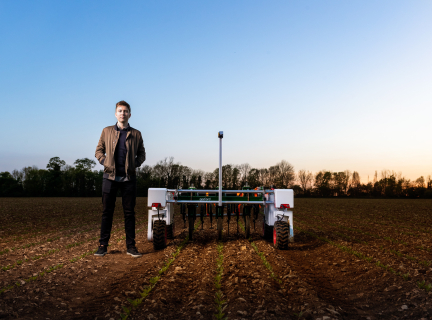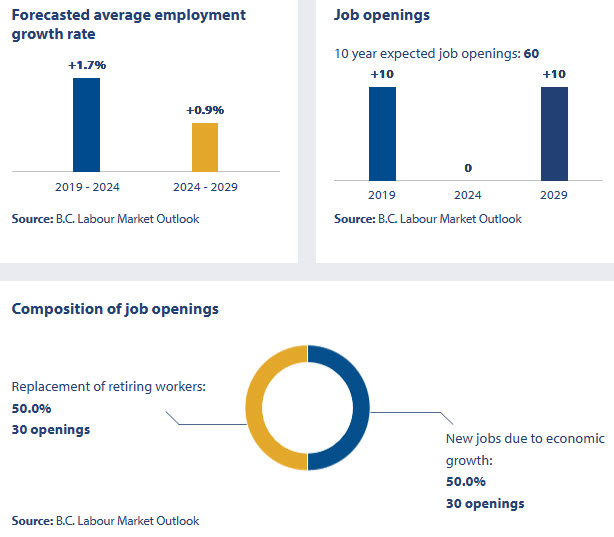Working as a Soil Scientist

Industry Overview
Soil scientists are part of the larger occupational group of physical science professionals. With accreditation and registration you may also be called an Agrologist in the province of BC. Soil science is considered a specialization within the field of agrology.
Soil Science offers career opportunities in a range of sectors including:
- Agriculture
- Forestry
- Environmental assessment and land use
- Mining and oil & gas industries
- Researcher for government or educational institutions
Sources: BC Institute of Agrologists and Canadian Society of Soil Science
Job Outlook in BC

Chart from WorkBC
WorkBC provides the regional employment outlook for Other Professional Occupations in Physical Sciences, which includes soil scientists, from 2019-2029:
| Region | Employment in 2019 |
Average Annual Employment Growth |
Expected Number of Job Openings 2019-2029 |
| Vancouver Island | 50 | -0.4% | 0 |
| Lower Mainland / Southwest | 100 | +1.4% | 30 |
| Cariboo | 30 | +2.9% | 10 |
You can learn more about working as a soil scientist from:
Types of Employers
Soil scientists are employed by:
- Federal, provincial and municipal government departments
- many industries including agriculture, forestry, oil & gas, mining
- environmental consulting and management companies
- universities, colleges and research institutes
- conservation agencies
You may also be self-employed and work as an independent consultant.
Salary & Working Hours
The annual median salary for Other Professional Occupations in Physical Sciences (including Soil Scientists) in BC is $89,512.
Your salary depends on your area of specialization, experience, employer, and level of education. If you have a Master’s degree or PhD you generally earn a higher salary than if you only have a bachelor degree.
Sources: WorkBC, Career Cruising
Working Hours
Most soil scientists work 40 hours a week. However, you may occasionally be required to work evenings and weekends when special inspections or studies of sites must be done.
You may have to travel in order to conduct fieldwork, taking soil samples for further study.
